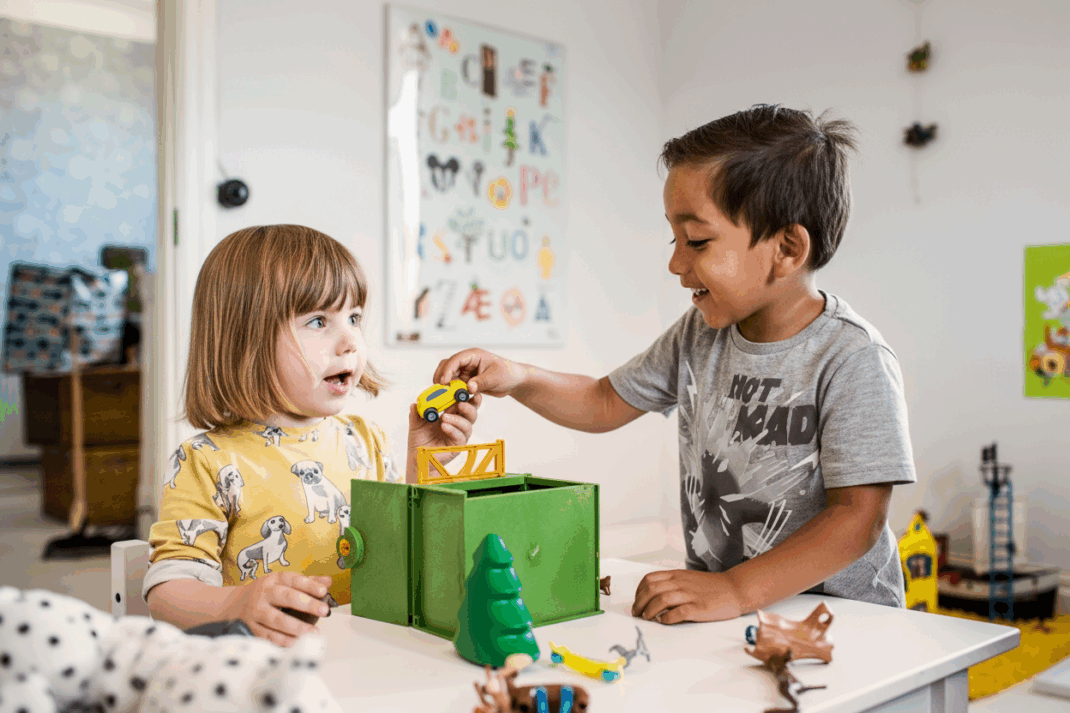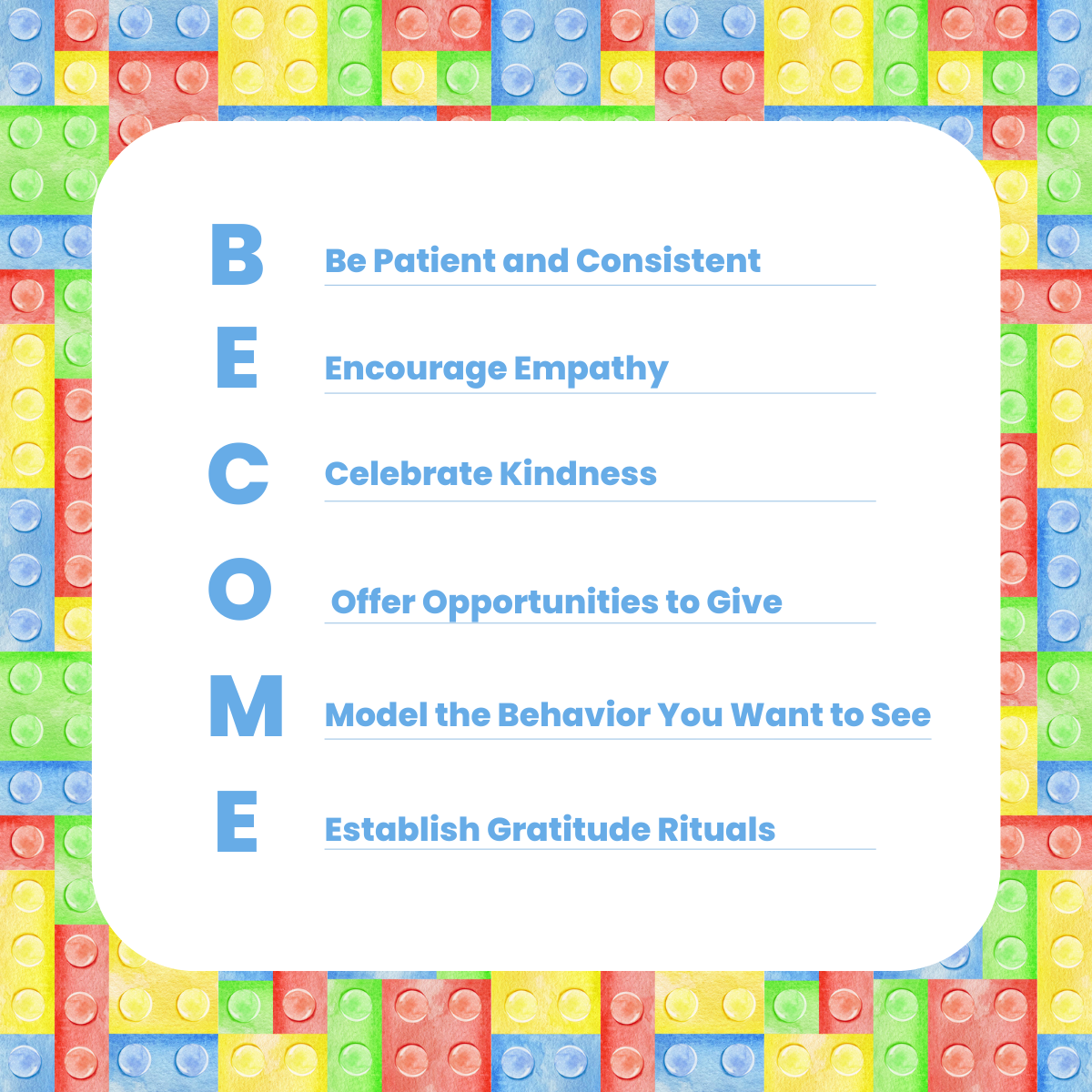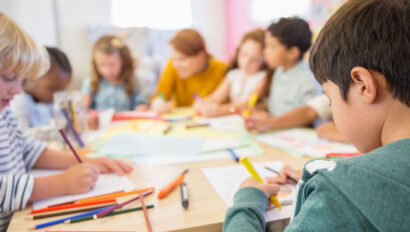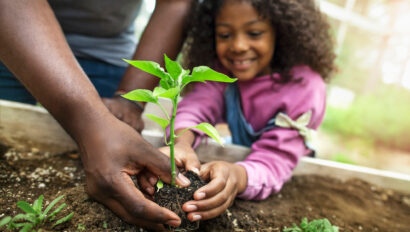Teaching Gratitude Through Play: A Parent’s Guide in Georgia

Quick Answer
Gratitude, kindness, and generosity help children build empathy, confidence, and strong relationships. In a play-based learning environment, children practice these values through daily routines, joyful moments, and opportunities to care for others. Parents can nurture gratitude at home by modeling thankfulness, creating simple rituals, and celebrating small acts of kindness.
Why Is It Important to Teach Gratitude and Generosity Early?
Early childhood is a natural time to introduce gratitude. Children are curious, eager to connect, and ready to copy what they see in the adults around them.
Research from the Child Mind Institute shows that children who practice gratitude are more resilient, confident, and socially aware. Thankfulness helps them build strong friendships and find joy in everyday experiences — from sharing a toy to noticing someone else’s feelings.
What Are Practical Ways Families Can Teach Gratitude at Home?
Gratitude doesn’t have to be complicated. One helpful way to think about it is the B.E.C.O.M.E. framework:
- B – Be Patient and Consistent
Gentle reminders and repeated practice help children build lasting habits. - E – Encourage Empathy
Ask questions like, “How do you think your friend felt?” to help children see situations from another perspective. - C – Celebrate Kindness
Notice kind actions and name them: “It was thoughtful of you to help clean up.” - O – Offer Opportunities to Give
Invite children to donate toys, make cards, or help prepare food for others. - M – Model the Behavior You Want to See
Children copy adults. Saying thank you or showing appreciation at home teaches gratitude through action. - E – Establish Gratitude Rituals
Start a gratitude jar, or share one thing you’re thankful for at bedtime. Daily rituals make gratitude part of your family’s rhythm.
How Does Gratitude Impact a Child’s Well-Being and Relationships?
Practicing gratitude helps children slow down, notice others, and value the little things. Kids who are encouraged to say thanks, give, and reflect on kindness often:
- Build stronger friendships
- Show empathy in play and group activities
- Handle frustration or conflict more calmly
- Feel a deeper sense of belonging at school and at home
What Role Do Play-Based Classrooms and Teachers Have?
In a play-based classroom, gratitude shows up naturally:
- When children thank a friend for sharing blocks
- When they take turns in pretend play
- When they notice a teacher’s help and smile in return
Teachers make these moments visible by celebrating kindness, guiding reflection, and encouraging teamwork. Gratitude doesn’t come from a lesson plan — it grows in the everyday flow of play and connection.
How Can Families Make Gratitude and Kindness Part of Daily Life?
You don’t need big projects to teach gratitude. Try small, simple practices that fit into family life:
- Share three “thankfuls” at dinner or bedtime.
- Keep a gratitude jar and read from it once a week.
- Use books and stories to spark conversations: “What was that character thankful for?”
- Encourage random acts of kindness — giving a compliment, helping set the table, or sharing a snack.
- Let kids express thanks in their own way, whether through words, hugs, or drawings.
Common Questions Parents Ask About Gratitude
What if my child forgets to say thank you?
That’s expected. Gentle reminders and modeling are the best teachers.
Is my child too young to learn gratitude?
Even toddlers can practice small steps, like sharing a toy or smiling when helped.
What if my child resists giving or sharing?
Start small. One toy, one book, one small act of kindness. Build from there.
How do I keep gratitude from feeling forced?
Make it playful. Gratitude jars, kindness challenges, or storytelling help thankfulness feel natural.
Final Thought: Gratitude Grows Through Play
Gratitude, kindness, and generosity aren’t skills taught once — they grow from everyday play and connection. When families and teachers notice these moments, celebrate them, and model them, children learn that thankfulness is part of who they are.
Families often tell us they notice gratitude and kindness taking root when children have the freedom to play and explore. Schedule a tour at Oxford Academy in Georgia to experience our approach for yourself.



